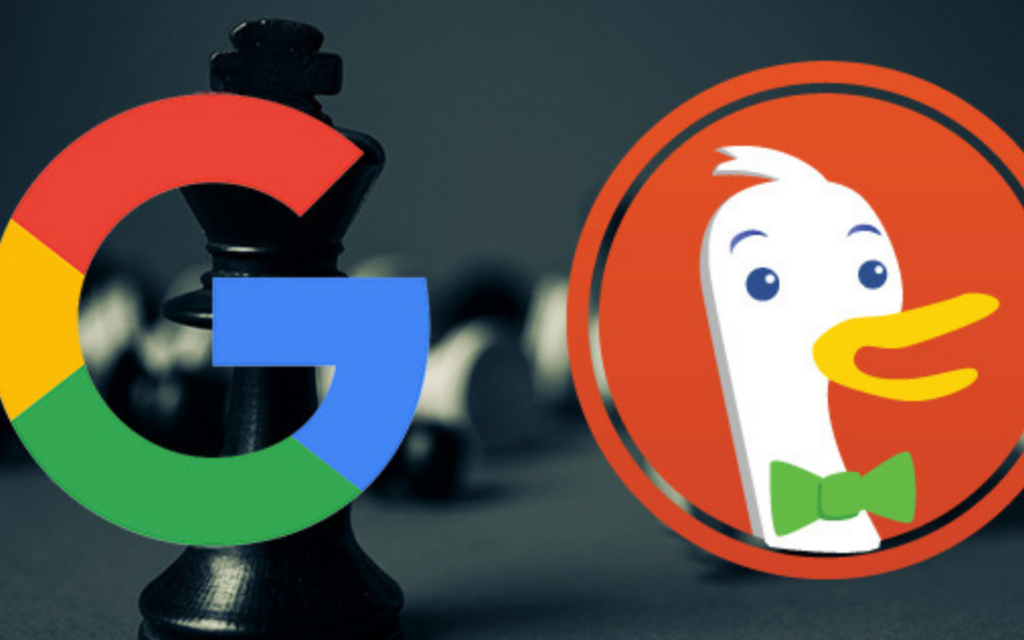What Is DuckDuckGo & Who Uses This Alternative Search Engine?


DuckDuckGo, an alternative search engine, is growing in popularity. Find out how it works and how you can protect your privacy.
Websites have been collecting user data to sell to third-party websites or target advertising for many years.
Facebook and Google are the most famous examples.
It seemed harmless to display an ad or show relevant searches about the shoes that you were interested in. This was a relatively benign use of personal information that worked in everyone’s favor.
The data scandals began.
Online users feel the sting of leaked data, from the Microsoft Hotmail scam to Cambridge Analytica and the Zoom scandal in 2020.
These scandals have raised users’ awareness about how their data is used online, and many are now wondering how to increase their online privacy.
DuckDuckGo.
What is DuckDuckGo?
Gabriel Weinberg created DuckDuckGo in 2008 as a search engine. This search engine is dedicated to protecting online privacy.
Their search options include
- Maps.
- Weather.
- Answers for local businesses
- News.
- Images.
- Videos.
- Shopping and products
- Definitions.
- Refer to Wikipedia.
- Conversions of currencies
- Information about flights
- Calculator.
- Timer.
- Sports scores.
- Refer to question and answer references.
DuckDuckGo also offers what they call bonus features
- Shortcut commands allow you to go directly to other websites using the search engine.
- Language and regional localization
- You can create your themes, even a dark one.
DuckDuckGo offers extensions and apps for different operating systems and browsers.
You can use Chrome, Safari, or any other browser and not be tracked.
DuckDuckGo Statistics
DuckDuckGo is the second-most popular mobile search engine within the U.S.
In Q1 2022, more than 8 billion searches were done by DuckDuckGo users.
DuckDuckGo has a 0.68% market share in search engine markets worldwide.
DuckDuckGo has a 2.51% market share in the U.S. search engine market.
Over six million users have downloaded the DuckDuckGo Chrome extension.
DuckDuckGo advertising is 10x cheaper than Google.
DuckDuckGo has raised $13,000,000 in funding.
DuckDuckGo employs 172 people.
What is DuckDuckGo different from other search engines?
Websites take note of your IP address when you visit them. This allows them to know where to send it.
Websites typically store your IP address as well as the data.
DuckDuckGo claims to conceal your IP address while using its search engine.
Clicking on a search result will redirect the information request so that it does not send your search terms to the site.
The sites know you have visited them but don’t know where or how keywords.
Google and Yahoo track your search history (even in private mode) to provide personalized search results.
These search engines can deliver personalized results and targeted ads by using this practice.
DuckDuckGo is a search engine (SE) that takes a different approach than other search engines.
DuckDuckGo claims not to collect that data so that you can escape the “filter bubble”.
DuckDuckGo search results do not reflect personal preferences, search history, or geographic location.
No stored search history
Consider all the information you look for online, such as financial solutions, medical information, and location-based queries.
Unlock (not available) with Keyword Hero See all organic keywords in GA and their performance metrics. Get a free trial You can cancel at any time. Expert support. 4-minute setup.
Some of these searches may be very personal.
Other search engines may also sell this information to advertisers to deliver personalized ads.
DuckDuckGo guarantees that it will never store your search history.
DuckDuckGo’s browser will deliver a new search result every time you use it.
How do they make it?
We will continue to serve you ads.
DuckDuckGo focuses on the keywords you search instead of being based solely on your search terms.
It will show you ads for pen pens if you search for them.
If you search for stationery, it will show you advertisements.
No Third-Party Trackers
Did you know that Google monitors website visitors to 86% of the top 50,000 websites worldwide?
Many sites use Google Analytics (GA) to track their visitors. Google also runs Adsense and Admob, the largest non-search advertising networks that most websites use.
Google is hard to ignore. Yahoo and Bing track your internet use to create profiles about you.
Facebook is another tech giant which tracks users behind closed doors.
Their coverage is 36% less than the other top sites.
DuckDuckGo’s mobile app and browser promise to block trackers from search engines, Facebook and other trackers.
DuckDuckGo is an excellent option for anyone looking to remain anonymous while searching the internet.
Unfiltered Results
Have you heard of the Filter Bubble?
When users are presented with information that supports their beliefs, the filter bubble is formed.
You can see that Google, Bing, and Yahoo are well-known for providing personalized search results.
What does this all mean for searchers?
Major search engines can remember your political views and other ideologies, filtering out any content you don’t want to read.
You are therefore, more likely to receive results that you already agree with.
DuckDuckGo believes search results should be impartial.
Their search results page provides everyone with the same results regardless of political preference, cultural bias, or other demographics.
What crawler does DuckDuckGo use?
DuckDuckGo has over 400 sources that provide results, including:
- Bing.
- Yahoo.
- Apple Maps.
- Wolfram Alpha.
- Yandex.
DuckDuckBot, their web browser, and other crowd-sourced websites like Wikipedia are also used to generate their equivalent of a snippet.
They also explicitly stated that they don’t use any Google sources.
They also promise never to share personal information with partners as part of their strict privacy policies.
This is good news for those who desire to keep their internet usage private.
The Pros and Cons of DuckDuckGo
Although Google remains the dominant player, DuckDuckGo users are steadily increasing.
They don’t keep track of users, so they can’t give an exact number.
But DuckDuckGo claimed that 80 million had used their search engine by November 2020.
DuckDuckGo might seem to be the best search engine for people with privacy concerns. However, there are pros and cons to this alternative search engine.
Pros and Cons of DuckDuckGo:
- Absolute privacy while searching
- Use Bangs shortcuts for a direct link to a website.
- Simple interface
- No targeted ads
- Results from unbiased searches
- Results for one-page searches
- Your searches are not used for social engineering.
Cons for DuckDuckGo:
- There are not as many search engine perks as Google, Yahoo, and Bing.
- The search algorithm isn’t as sophisticated.
- Results for an unreasonable search.
- There is no protection against viruses or malware.
- Weak ranking factors
- Image and mapping results are not as good.
DuckDuckGo can be a viable alternative if you care about your privacy online and are willing to spend a little more time searching.
But, if you love all the bells and whistles offered by major search engines, be aware that these luxuries come with a price.

